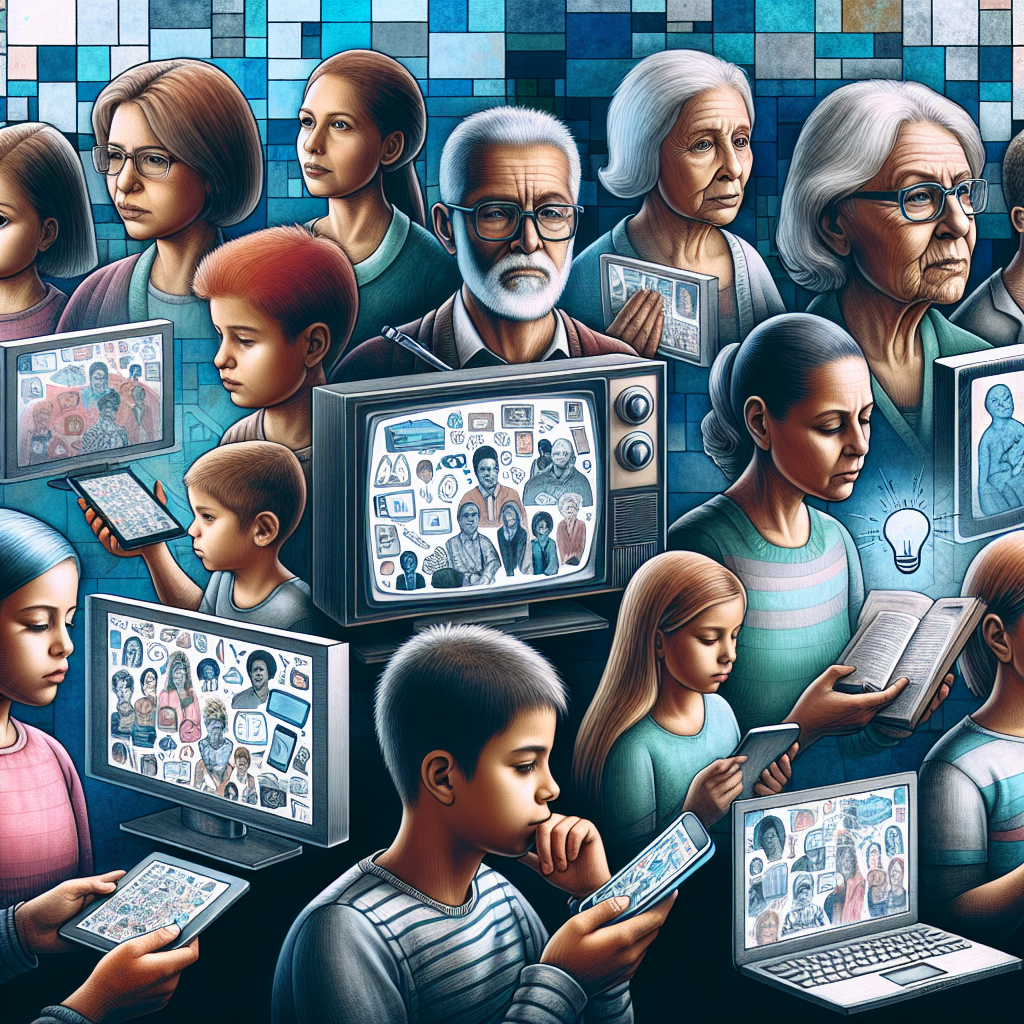In today’s fast-paced world, educational on-demand programs have become a popular choice for learners of all ages looking to enhance their knowledge and skills. These programs offer a convenient and flexible way to access a wide range of educational content at any time, from anywhere. Whether you’re a working professional looking to upskill, a student looking for extra support with your studies, or someone simply curious to learn something new, these programs cater to all. Join us as we dive into the impact of these innovative educational platforms, exploring how they are revolutionizing the way we learn and grow.
Understanding Educational On-Demand Programs
Educational On-Demand Programs are defined as digital platforms or services that offer educational content and resources that can be accessed at any time and from any location. These programs cater to learners of all ages, providing a flexible and convenient way to acquire knowledge and skills.
Definition of Educational On-Demand Programs
- Educational On-Demand Programs encompass a wide range of learning materials, including video lectures, interactive quizzes, e-books, and virtual labs.
- These programs differ from traditional education models by allowing users to access content at their own pace and on their own schedule.
- Users can choose specific topics or courses based on their interests and needs, creating a personalized learning experience.
Evolution of On-Demand Education
- The concept of on-demand education has evolved significantly with advancements in technology, particularly the widespread availability of high-speed internet and mobile devices.
- Initially popularized by platforms like Khan Academy and Coursera, on-demand education has now expanded to include a diverse array of subjects and formats.
- The shift towards on-demand education reflects a growing demand for flexibility and accessibility in learning, as individuals seek to upskill or pursue new interests outside of traditional academic settings.
Benefits of Educational On-Demand Programs

For Children
-
Flexibility in Learning
- Educational on-demand programs offer children the flexibility to learn at their own pace and schedule. This means that children can access educational content when it best suits their individual learning preferences, whether that’s early in the morning, late at night, or during weekends. This flexibility can cater to different learning styles and help children engage more effectively with the material.
-
Personalized Learning Experience
- These programs often utilize algorithms and data analysis to tailor educational content to the specific needs and abilities of each child. By providing personalized recommendations and adaptive learning paths, children can focus on areas where they need more support or challenge themselves with more advanced material. This individualized approach can enhance learning outcomes and increase children’s motivation to engage with the content.
-
Access to Diverse Educational Content
- Educational on-demand programs can offer a wide range of educational content across various subjects and formats. Children have the opportunity to explore topics that may not be covered in traditional school curriculums, fostering a love for learning and encouraging curiosity. Additionally, access to diverse content can help children discover new interests and talents, promoting holistic development beyond academic achievements.
For Teenagers
Benefits of Educational On-Demand Programs
- Skill Development Opportunities
Educational on-demand programs offer teenagers the chance to acquire a diverse range of skills in various subjects. Through interactive online courses and virtual workshops, teenagers can enhance their critical thinking, problem-solving, and communication skills. These programs often cover topics not typically taught in traditional school settings, allowing teenagers to explore their interests and develop valuable competencies that can benefit them academically and professionally.
- Preparation for Higher Education and Careers
Engaging with educational on-demand programs can better prepare teenagers for higher education and future careers. By participating in courses tailored to their academic and professional goals, teenagers can gain a deeper understanding of potential fields of study or career paths. This early exposure can help them make more informed decisions about their educational and professional trajectories, ultimately increasing their chances of success in their chosen endeavors.
- Encouraging Self-Directed Learning
Educational on-demand programs foster self-directed learning among teenagers by providing them with the autonomy to choose what, when, and how they learn. This flexibility allows teenagers to take ownership of their education and pursue topics that genuinely interest them. By encouraging self-motivation and independent exploration, these programs empower teenagers to develop crucial skills such as time management, goal setting, and perseverance, which are essential for lifelong learning and personal growth.
For Adults
- Continuing Education and Professional Development
Educational on-demand programs offer adults the opportunity to enhance their skills, acquire new knowledge, and stay current in their fields without disrupting their careers. These programs often provide up-to-date content that is directly applicable to the workplace, allowing adults to remain competitive in a rapidly evolving job market. By participating in on-demand learning, adults can pursue professional certifications, upskill or reskill, and demonstrate a commitment to lifelong learning, all of which can boost their career prospects and earning potential.
- Work-Life Balance
One of the key benefits of educational on-demand programs for adults is the flexibility they offer in terms of scheduling and learning pace. Unlike traditional classroom-based education, on-demand programs allow adults to access educational materials and resources at their convenience, fitting learning around their existing commitments such as work and family responsibilities. This flexibility not only reduces the stress associated with balancing work and education but also empowers adults to take control of their own learning journey, fostering a sense of autonomy and self-direction.
- Accessibility for Lifelong Learners
Educational on-demand programs cater to adults who have a thirst for knowledge and a desire to continue learning throughout their lives. These programs are designed to be inclusive and accessible to learners of all ages and backgrounds, providing opportunities for personal enrichment and intellectual growth outside of traditional academic settings. By offering a wide range of courses and subjects, on-demand programs enable adults to explore new interests, delve into niche topics, and engage in lifelong learning pursuits that can enrich their lives and expand their horizons.

Challenges and Misconceptions
Misconception: Lack of Interaction
One common misconception surrounding educational on-demand programs is the belief that they lack interaction compared to traditional classroom settings. However, this notion overlooks the various strategies and techniques that can be implemented to foster engagement and interaction in these programs. Here are some key points to consider:
- Strategies to Foster Engagement and Interaction:
- Utilizing discussion forums and chat rooms to encourage communication among participants. These platforms provide a space for students to ask questions, share insights, and engage in meaningful discussions.
- Incorporating interactive elements such as quizzes, polls, and virtual simulations to keep learners actively involved in the learning process. These activities not only assess understanding but also promote active participation.
-
Offering live webinars or virtual classroom sessions where students can interact in real-time with instructors and peers. This synchronous mode of communication helps create a sense of community and collaboration.
-
Incorporating Collaborative Learning Elements:
- Implementing group projects or assignments that require students to work together towards a common goal. Collaborative tasks foster teamwork, communication skills, and the ability to negotiate differing viewpoints.
- Encouraging peer-to-peer feedback and peer review processes to promote constructive criticism and reflection. This not only enhances the learning experience but also cultivates a culture of continuous improvement.
- Introducing virtual study groups or online study sessions where participants can connect with like-minded individuals to discuss course material, share resources, and support each other academically.
By actively incorporating these strategies and collaborative learning elements, educational on-demand programs can effectively address the misconception of lacking interaction, thereby creating a dynamic and engaging learning environment for learners of all ages.
Challenge: Quality of Content
In the realm of educational on-demand programs for all ages, ensuring the quality of content is paramount to the effectiveness of these platforms. The challenge lies in maintaining a standard that upholds credibility and educational value. Here are some key aspects to consider:
- Importance of Credible Sources:
- One of the primary challenges is verifying the credibility of the sources providing educational content. With the vast amount of information available online, distinguishing between reliable and questionable sources is crucial.
-
Educational on-demand programs must prioritize content from reputable institutions, experts in the field, or established educational platforms to ensure accuracy and reliability.
-
Curating High-Quality Educational Materials:
- Another challenge is the need to curate high-quality educational materials that are engaging, informative, and aligned with educational standards.
- Content creators and platform administrators must invest in rigorous screening processes to filter out substandard materials and ensure that the content meets the learning objectives of the audience.
By addressing the challenge of content quality through these strategies, educational on-demand programs can enhance their impact on learners of all ages.
Challenge: Motivation and Discipline
In the realm of educational on-demand programs, a significant challenge that learners of all ages encounter is the issue of maintaining motivation and discipline throughout the learning process. This challenge is particularly pronounced in self-paced online learning environments where individuals must rely on their own drive to stay engaged and committed to their educational goals.
Implementing Effective Goal-Setting Techniques
To address the challenge of motivation and discipline, implementing effective goal-setting techniques is paramount. Setting clear, achievable short-term and long-term goals can help learners maintain focus and stay motivated. By breaking down larger learning objectives into smaller milestones, individuals can track their progress and celebrate their achievements along the way, fueling their motivation to continue learning.
Utilizing Gamification and Rewards

Another strategy to enhance motivation and discipline in educational on-demand programs is the incorporation of gamification elements and rewards. Gamification leverages game design principles to make learning more interactive and engaging, tapping into individuals’ intrinsic motivation to progress through challenges and earn rewards. By incorporating features such as badges, points, leaderboards, and virtual rewards, on-demand programs can incentivize learners to stay on track and complete their educational tasks. This gamified approach can help individuals overcome procrastination tendencies and maintain a consistent learning routine.
Best Practices for Maximizing Educational On-Demand Programs
Educational on-demand programs have revolutionized learning by offering flexibility and accessibility to individuals of all ages. To maximize the benefits of these programs, it is essential to follow best practices that enhance the learning experience and facilitate knowledge retention. Here are some key strategies for making the most out of educational on-demand programs:
Establishing a Learning Routine
Creating a consistent learning routine is crucial for effectively engaging with educational on-demand programs. By dedicating specific times each day or week to study and participate in online courses, learners can establish a sense of structure and discipline. This routine helps in maintaining motivation, staying organized, and ensuring regular progress in the learning journey. Moreover, a well-established learning routine can improve time management skills and prevent procrastination, ultimately leading to a more productive learning experience.
Setting Clear Learning Goals
Setting clear and achievable learning goals is fundamental to the success of educational on-demand programs. Before starting a course or program, learners should outline their objectives and what they aim to accomplish by the end of the learning period. These goals can be related to acquiring new skills, gaining knowledge in a specific subject area, or obtaining a certification. By having well-defined learning goals, individuals can stay focused, track their progress, and measure their success throughout the learning process. Additionally, setting milestones and deadlines for achieving these goals can provide a sense of direction and motivation to stay committed to the educational program.
Engaging with Peers and Instructors
One of the significant advantages of educational on-demand programs is the opportunity to interact with peers and instructors from diverse backgrounds and expertise. To maximize the learning experience, learners should actively engage in discussions, forums, and virtual classrooms to exchange ideas, ask questions, and collaborate on projects. Interacting with peers not only enhances understanding through different perspectives but also fosters a sense of community and support in the online learning environment. Similarly, engaging with instructors by seeking feedback, clarification, and guidance can help clarify concepts, address challenges, and deepen comprehension of the course material. Building connections with peers and instructors not only enriches the learning experience but also expands professional networks and opportunities for future collaborations.
Exploring Different Types of Educational On-Demand Programs
Online Courses and Certifications
Online courses and certifications have revolutionized the way individuals of all ages access education. These programs offer a wide range of subjects and topics, allowing learners to enhance their skills or acquire new knowledge conveniently. The flexibility of online courses enables individuals to study at their own pace, making education more accessible to those with busy schedules. Moreover, online certifications provide learners with tangible proof of their skills and expertise, making them valuable assets in the job market.
Educational Apps and Platforms
Educational apps and platforms cater to diverse learning styles and preferences, offering interactive and engaging content for users of all ages. These tools often utilize gamification and multimedia elements to make learning fun and effective. By leveraging technology, educational apps and platforms can adapt to individual learning needs, providing personalized learning experiences. Additionally, the accessibility of these apps on various devices makes education more inclusive and convenient for learners around the world.
Virtual Tutoring and Mentorship Programs
Virtual tutoring and mentorship programs connect learners with experienced educators and mentors, bridging the gap between traditional and online education. These programs offer personalized guidance and support to individuals seeking academic assistance or career advice. Through one-on-one interactions and real-time feedback, virtual tutoring and mentorship programs help learners achieve their educational goals more effectively. The convenience of virtual sessions eliminates geographical barriers, allowing learners to access high-quality education from anywhere.
The Future of Education: Innovations in On-Demand Learning
In the realm of education, the landscape is rapidly evolving, with on-demand learning programs at the forefront of this transformation. These programs are redefining traditional educational models and paving the way for a more accessible, personalized, and engaging learning experience. Let’s delve into the key innovations shaping the future of education through on-demand learning.
Integration of Artificial Intelligence and Machine Learning
Artificial Intelligence (AI) and Machine Learning (ML) are revolutionizing the educational sector by providing personalized learning experiences tailored to individual needs. Through sophisticated algorithms, AI analyzes student data to identify strengths, weaknesses, and learning patterns, enabling the delivery of customized content and adaptive assessments. This real-time feedback mechanism enhances student comprehension and retention, ultimately leading to improved academic outcomes. Moreover, AI-powered chatbots and virtual tutors offer round-the-clock assistance, fostering a supportive learning environment outside traditional classroom settings.
Virtual Reality and Augmented Reality in Education
The integration of Virtual Reality (VR) and Augmented Reality (AR) technologies has opened up new avenues for immersive and experiential learning. By transporting students to virtual environments and simulating real-world scenarios, VR and AR enhance engagement and knowledge retention. For instance, medical students can practice surgical procedures in a risk-free virtual setting, while history students can explore ancient civilizations through interactive AR applications. These technologies not only make learning more interactive and enjoyable but also cater to diverse learning styles, making complex concepts more accessible and understandable.
Personalized Learning Pathways and Adaptive Technologies
On-demand learning programs leverage personalized learning pathways and adaptive technologies to cater to the unique needs and preferences of each learner. By utilizing data analytics and cognitive science principles, these programs create individualized learning trajectories that align with students’ learning goals and pace. Adaptive learning platforms adjust content difficulty based on students’ performance, ensuring they are appropriately challenged and supported throughout their educational journey. This tailored approach promotes self-directed learning, boosts motivation, and fosters a sense of accomplishment, ultimately empowering learners to reach their full potential.
FAQs: Exploring the Impact of Educational On-Demand Programs for All Ages
What are educational on-demand programs for all ages?
Educational on-demand programs are online educational resources that can be accessed anytime and anywhere. They cater to learners of all ages, providing a wide range of subjects and topics to choose from. These programs offer flexibility and convenience for individuals looking to enhance their knowledge and skills.
How can educational on-demand programs benefit learners of all ages?
Educational on-demand programs offer a personalized learning experience, allowing individuals to learn at their own pace. They provide access to a wealth of knowledge and expertise from experts in various fields. These programs are also cost-effective and accessible to a wide range of individuals, regardless of their location or schedule.
What types of educational on-demand programs are available for all ages?
There are a variety of educational on-demand programs available for learners of all ages, ranging from academic courses to professional development workshops. These programs cover a wide range of subjects, including language learning, STEM education, business skills, and more. Some platforms also offer specialized programs for children and seniors, catering to diverse learning needs.
Are educational on-demand programs suitable for individuals with varying levels of expertise?
Yes, educational on-demand programs are designed to accommodate learners of all levels, from beginners to advanced. They often offer content that is tailored to different proficiency levels, allowing individuals to build upon their existing knowledge and skills. Additionally, many programs provide resources such as quizzes and assessments to help learners track their progress and identify areas for improvement.
How can individuals get started with educational on-demand programs?
Getting started with educational on-demand programs is easy. Individuals can simply sign up on a platform of their choice, explore the available programs, and enroll in courses that align with their interests and goals. Many platforms offer free trials or introductory courses to help individuals familiarize themselves with the learning experience before committing to a full program.
